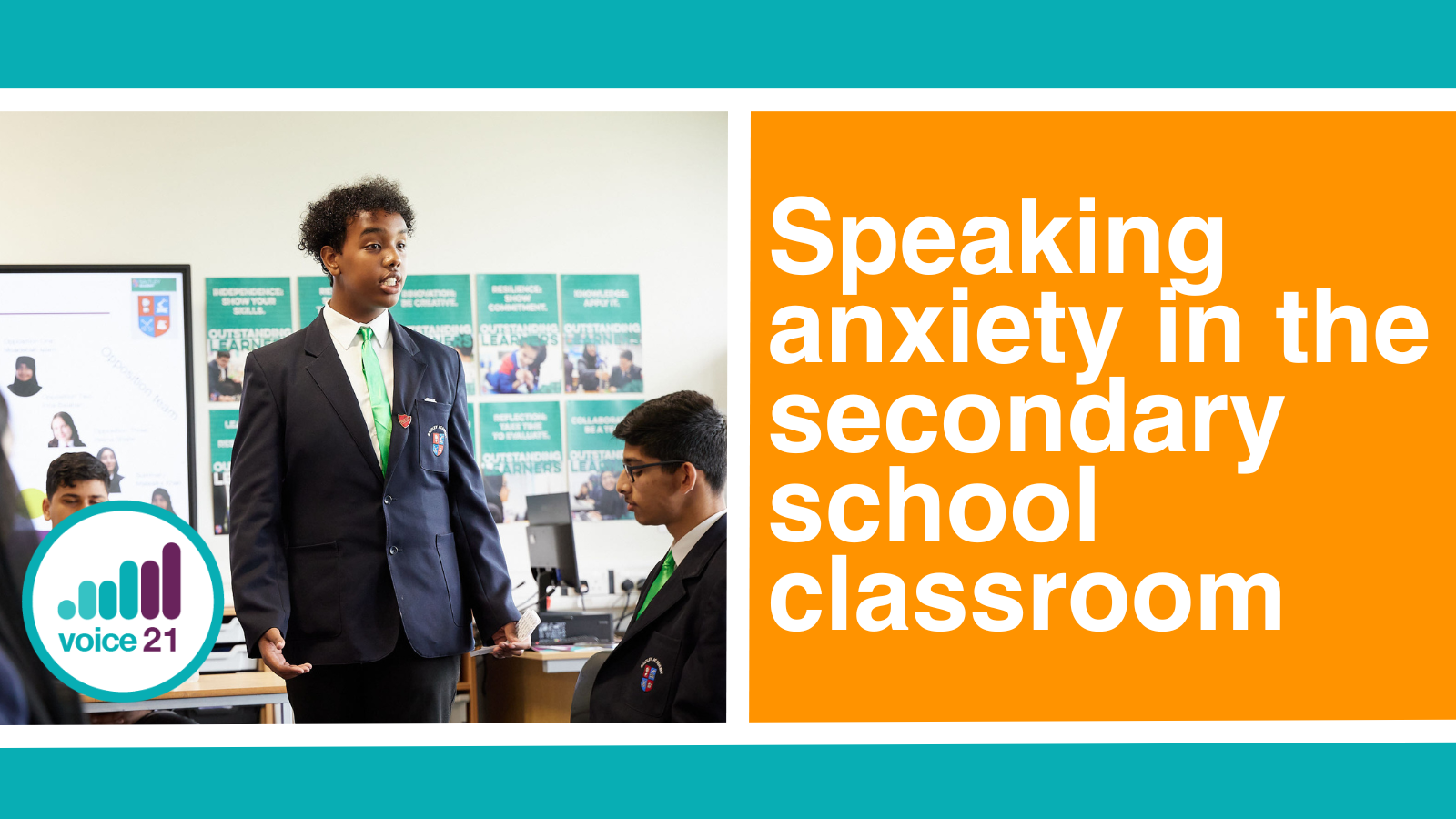
Over 40,000 students were polled as part of Voice 21’s Insights and Impact report 2021/22. At primary age, only 35% disagreed with the statement that I am good at speaking in front of an audience (i.e. presenting work to my class), but this steadily increased to 48% for secondary-aged students.
When segmented according to key stages, students who do not feel confident speaking in the classroom jump from 29% in key stage 1 to 52% by key stage 4, an increase of 23%.
The report explores how an oracy education can address anxieties around speaking and presenting their work at school, as well as improving student confidence socially and emotionally. Through testimonials collected in the study, students reported how developing oracy skills helped them learn more at school, improve how they communicate with others and articulate their feelings and develop crucial life skills for their future careers.
“Sometimes I struggle to speak in front of teachers because I have a bit of anxiety but Oracy is important to me as it’s helping me understand there’s nothing to be scared about” – Year 7 student.
Teacher responses in the study supported the positive impact of an oracy education.
Of the 12,313 teachers polled in 605 Voice 21 oracy schools:
Amy Gaunt, Director of Learning and Impact at Voice 21, says: ‘These findings really highlight the importance of a high-quality oracy education, particularly for students transitioning to secondary school. Oracy skills can help students adapt and navigate their new environment, boosting their confidence in the classroom as well as their social skills. However, these oracy skills require explicit teaching as part of a high-quality oracy education which equips all students with the oracy skills they need to be successful in school and life’.
Oracy interventions can have a positive impact on reading. Through the Voicing Vocabulary programme, results from standardised reading tests completed by Year 6 and Year 7 students revealed that 80% of students meet or exceed expected progress, with one third of students exceeding expected progress. In the words of a teacher at participating Sugar Hill Primary, ‘My reading scores have increased dramatically due to an oracy-rich approach to comprehension lessons.’
The report shares seven lessons that emerged from Voice 21’s activities in 2021/22 (its seventh year of operation) to inform thinking and actions in schools with regards to oracy.
These are:
Beccy Earnshaw, CEO of Voice 21 says: ‘Continually developing our understanding of oracy, researching and innovating new ways of developing students’ speaking and listening skills, and dissecting how teachers and schools change through our work with them are essential to achieving our mission. The UK’s education system does not reflect the value and importance of oracy to children and young people’s outcomes in school and beyond. Our aim at Voice 21 is to raise the value and profile of oracy across the education system to elevate oracy to the same status as ‘literacy’ and ‘numeracy’ and create the conditions for more schools to provide a high-quality oracy education’.
© 2024 Voice 21. Voice 21 is a registered charity in England and Wales. Charity number 1152672 | Company no. 08165798